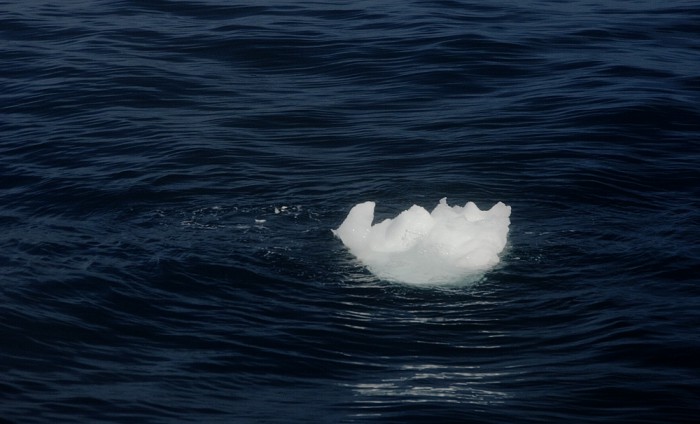
The fourth site in the News Deeply family, Arctic Deeply, launches Tuesday, drilling down on stories about the Arctic region and the radiating consequences that a shrinking Arctic brings to global ecology, the energy industry, national security, international relations, and the future of indigenous indigenous communities. It follows the model of Syria Deeply (which in turn was a model for Ebola and Water Deeplies): the site will run a mix of reported pieces, on-the-ground stories and analysis from people who live near the Arctic, op-eds from academics, researchers at think tanks, and community leaders, and some aggregation from other sites.
Setrakian found current news coverage of the Arctic region to be spotty and thought it didn’t focus on the right parties, despite a burst of climate change reporting efforts in recent months.
“As with all our sites, we want to consistently follow up with how different forces are interacting in a fragile ecosystem,” she said. “There is so much more beyond the basic cliché of the U.S. and Russia going to war over the Arctic’s resources. Interestingly enough, that’s not really the story anymore. The U.S. and Russia are now collaborating more in the Arctic. There are nuances. There are other corners of foreign policy.”
The idea for an Arctic-focused Deeply site has been in the works for almost two years. It was supposed to launch in October, but the team wanted to add some elements to the site and wait on a few partnerships, so it’s now launching in the middle of the Paris climate talks (a coincidence, but as good a time as any, Setrakian said).Arctic Deeply is supported by the Center for International Governance Innovation, a Canadian think tank based in Waterloo, and OpenCanada, a digital publication that produces reported stories and analysis on international affairs. The site’s managing editor, Hannah Hoag, is based in Toronto.
Canada is, literally, an entry point into the Arctic region (and to Arctic issues).
“Toronto has great connectivity to communities in the high north, far more than New York,” Setrakian said (News Deeply’s headquarters are in NYC). “We have a lot of folks who will be contributing from those communities, who are sensitive to the developments in the Arctic. These issues could impact their jobs, their livelihoods.”
At least for the moment, the writers for the site will be freelance, but that doesn’t mean the site will be constrained in what it can cover. As with the other Deeplies, Arctic Deeply intends to pare down the sprawling offerings of general news sites in hopes of becoming the single best resource hub for all things Arctic. The site doesn’t cover breaking news in the regular sense; all its stories have to contain a deeper component of analysis.
“The site is more about the connections between different issues that have previously been treated on their own,” Hoag said. “We’re also trying to shorten the geographical distances between events and readers. In North America, the little we do read about the Arctic is about what goes on in Alaska, in Canada. We don’t have a good sense what’s going on, for instance, in Russia. Hopefully we can fill some of those gaps in understanding.
“I’m hesitant to say there’s anything we wouldn’t cover, and a lot of what we’ll cover will overlap in multiple areas,” she added. “With the Open Canada partnership, I hope we can run some more narrative features, too.”
Setrakian has no illusions about the readership for the Arctic site, or any of the other Deeplies: they are often policymakers, think tanks, academics, humanitarian groups and NGOs, indigenous rights groups, but also some members of the “engaged public.”
“We know diehards are the mainstay of our readership,” she said. “For them, what might look to a general reader like a small piece of news, they can see that it is extremely consequential. Russia’s decision on offshore drilling in the Arctic may not strike the mainstream audience as particularly interesting, but that’s of high interest to our audience.”
Arctic Deeply has also signed content-sharing partnerships with The Huffington Post and the Associated Press, to get some of its stories in front of a wider audience.
Overall, Deeply’s hyper-focused model is growing in the way Setrakian had hoped, and a Refugees Deeply “is likely up next,” she said. Next year, all the separate Deeply sites will also be connected through a unified platform.
She also sees enormous potential in the online and offline community of the sites’ most engaged and active readers, and hints at new features in the works around community building, to be unveiled next year.
“We have basically become the go-to place for a network of practitioners on these issues — how can we now introduce them to each other?”